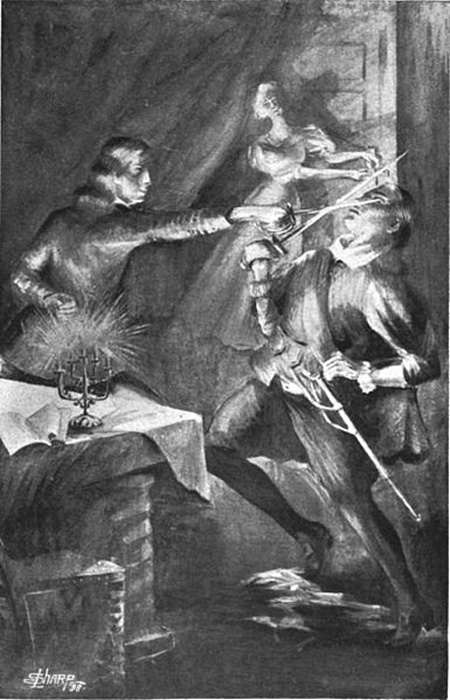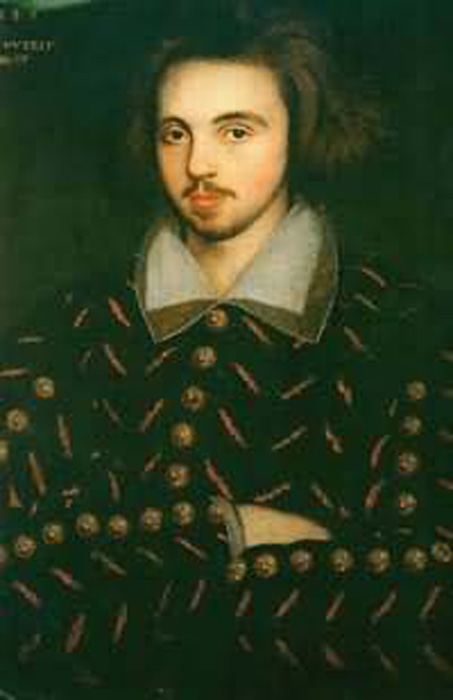On 30 May 1593, four men met for a private meeting in Deptford, south London, for obscure and unknown reasons. One of those men would never leave alive.
The man who was killed that day was the playwright Christopher Marlowe, a man who at that time many considered a better writer than Shakespeare. His plays and his poetry were unsurpassed, and his death at the age of just 29 robbed the world of a true artistic genius.
Who knows what treasures were lost to posterity with his untimely death. But, most mysterious of all was the manner of his passing. What was he doing in Deptford on that fateful day? And why was he killed?
Dangerous Deptford
Deptford lies on the south bank of the river Thames in London, a few hundred yards or meters west of the royal palaces of Greenwich. It is best known as a dockyard during the mid-16th century to the late 19th century, the first royal dockyard in the history of England.
Deptford was an unsavory place in the late 16th century, a fair distance from the City of London and on the wrong side of the river, to boot. The south bank of the Thames was outside the jurisdiction of City law and was known for its taverns, its gambling houses, and its brothels.
Marlowe and the people he met with had rented a private room in Deptford from a widow named Eleanor Bull, who apparently ran a tavern, on 30 May 1593. All of the men knew each other and all were in the employ of the Walsingham family, headed until recently by Queen Elizabeth’s notorious spymaster Sir Francis Walsingham.

Some of what happened that day can be pieced together from eyewitness accounts, and the coroner’s report. However the purpose of that meeting and Marlowe’s involvement remain somewhat obscure. Why was a famous playwright involved with these men?
There are two broad theories as to how this affair can be untangled. The short theory suggests a quick answer, with the suspect already present in the room. The longer theory is not so straightforward.
Who were the Four Men?
The four men present in the room at Eleanor Bull’s house on 30 May 1593 were as follows:
Robert Poley, an experienced agent working for the government. Robert was known to have carried out several clandestine tasks for Queen and country, carrying secret communications to and from Europe. Robert had come to the house in Deptford directly from the Hague in the Netherlands that day, where he had been on government business.
Ingram Frizer, a gentleman and another agent of the Walsinghams. Frizer was a successful businessman with a questionable reputation, known as something of a con artist. Ingram Frizer was also the cousin of Sir Francis Walsingham.
Nicholas Skeres, a government agent and “professional deceiver” for the Queen. Along with Poley, he had been instrumental in uncovering a plot against Queen Elizabeth a decade before. Apart from that, Skeres was also involved in shady business dealings with Ingram Frizer.
Christopher Marlowe was the fourth man in the room, and his presence alongside these men seems unusual. Various threads can be found which link the playwright to these men, for example the fact that he was staying with the cousin of Sir Francus Walsingham, Thomas. But what his dealings were with these three government agents, is unclear.
Who killed Christopher Marlowe: The Short Answer
As per the coroner’s report, the four men had their lunch at Eleanor Bull’s house, and walked into the garden for a few hours the same day. Then four of them returned to the room and dined together in each other’s company.
After the supper was over, Ingram Frizer and Christopher Marlowe argued over the settling of the bill for the day. Marlowe was lying on a couch in the room, when in a fit of rage he sprang up, grabbed the dagger at Frizer’s belt, and stabbed him with it.

The injured Frizer fight back and retrieved his dagger. In the scuffle, Marlowe was then stabbed above the eye, and killed instantly. He claimed the action was in self defense, and at his trial for the murder the jury agreed with him.
Too Many Unanswered Questions
For many, this explanation seems too straightforward, as there as a lot going on in Marlowe’s life at this point. A warrant for his arrest had been issued two weeks earlier, for writing heretical poetry, apparently for private amusement.
His association with Thomas Walsingham is also obscure, and many have suggested that Marlowe was a government agent himself. The meeting with Poley, Frizer and Skeres would seem to support this theory, as all three were known agents of the Queen.
Marlowe had travelled to Rheims in the past on unknown business. Rheims was suspected to harbor Catholic plotters against Queen Elizabeth, and it is possible he had gone there to gather information for the crown.
Was he killed for his espionage activities, or perhaps by agents of the Queen? Had his heretical poetry landed him in hot water, making him an inconvenience who needed to be removed? Was he murdered for his other writings, which were often incendiary?
Another intriguing possibility can be found in an account by an English man of the church named Francis Meres, who wrote of his death five years later, in 1598. Meres claimed that Marlowe was “stabbed to death by a bawdy serving-man, a rival of his in his lewd love”. Marlowe was almost certainly gay – was he killed by a lover, or out of hatred for his homosexuality?
Did he Die at All?
Perhaps the most interesting theory is that Marlowe didn’t die at all. As an agent of the Queen, anonymity would have been vital to allow him to carry out his clandestine tasks.
But Marlowe’s plays had brought him fame and he was becoming too well known. Did the four men at Deptford fake his death, allowing him to continue his service to the crown undetected?

All sorts of interesting theories spring from this possibility. William Shakespeare, a talented but somewhat overlooked playwright at this time, suddenly began producing astonishingly beautiful poetry. Could Marlowe have used Shakespeare as a front-man for his continued writings? Are Shakespeare’s plays actually Marlowe’s?
Ultimately, this seems unlikely. The shortest explanation, that Marlowe was stabbed in a tavern brawl over payment of the bill, seems most likely. He may have been a government agent, he may have been in trouble with the crown.
But somebody refused to pay their fair share, and what followed claimed the life of one of the most brilliant playwrights and poets the world has ever known.
Top Image: Why was Christopher Marlowe at the Deptford tavern that day? Source: pugovica_88 / Adobe Stock.
By Bipin Dimri